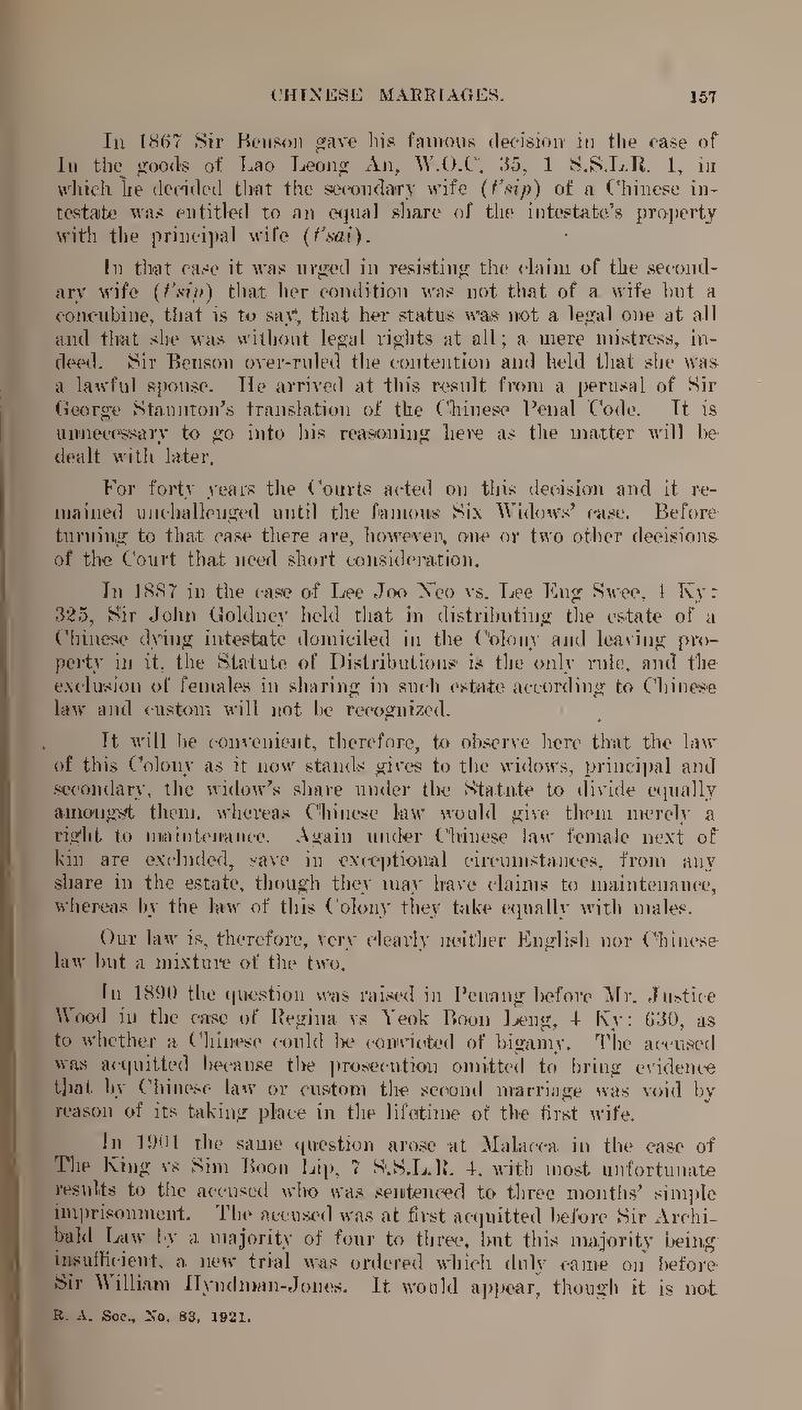In 1867 Sir Benson gave his famous decision in the case of In the goods of Lao Leong An, W.O.C. 35, 1 S.S.L.R. 1, in which he decided that the secondary wife (t'sip) of a Chinese intestate was entitled to an equal share of the intestate's property with the principal wife (t'sai).
In that case it was urged in resisting the claim of the secondary wife (t'sip) that her condition was not that of a wife but a concubine, that is to say, that her status was not a legal one at all and that she was without legal rights at all; a mere mistress, indeed. Sir Benson over-ruled the contention and held that she was a lawful spouse. He arrived at this result from a perusal of Sir George Staunton's translation of the Chinese Penal Code. It is unnecessary to go into his reasoning here as the matter will be dealt with later.
For forty years the Courts acted on this decision and it remained unchallenged until the famous Six Widows' rase. Before turning to that case there are, however, one or two other decisions of the Court that need short consideration.
In 1887 in the case of Lee Joo Neo vs. Lee Eng Swee, 1 Ky: 325, Sir John Goldney held that in distributing the estate of a Chinese dying intestate domiciled in the Colony and leaving property in it, the Statute of Distributions is the only rule, and the exclusion of females in sharing in such estate according to Chinese law and custom will not be recognized.
It will he convenient, therefore, to observe here that the law of this Colony as it now stands gives to the widows, principal and secondary, the widow's share under the Statute to divide equally amongst them, whereas Chinese law would give them merely a right to maintenance. Again under Chinese law female next of kin are excluded, save in exceptional circumstances, from any share in the estate, though they may brave claims to maintenance, whereas by the law of this Colony they take equally with males.
Our law is, therefore, very clearly neither English nor Chinese law but a mixture of the two.
In 1890 the question was raised in Penang before Mr. Justice Wood in the case of Regina vs Yeok Boon Leng, Ky: 630, as to whether a Chinese could be convicted of bigamy. The accused was acquitted because the prosecution omitted to bring evidence that by Chinese law or custom the second marriage was void by reason of its taking place in the lifetime of the first wife.
In 1901 the same question arose at Malacca in the case of The King vs Sim Boon Lip, 7 S.S.L.R. 4. with most unfortunate results to the accused who was sentenced to three months' simple imprisonment. The accused was at first acquitted before Sir Archibald Law by a majority of four to three, but this majority being insufficient, a new trial was ordered which duly came on before Sir William Hyndman-Jones. It would appear, though it is not
